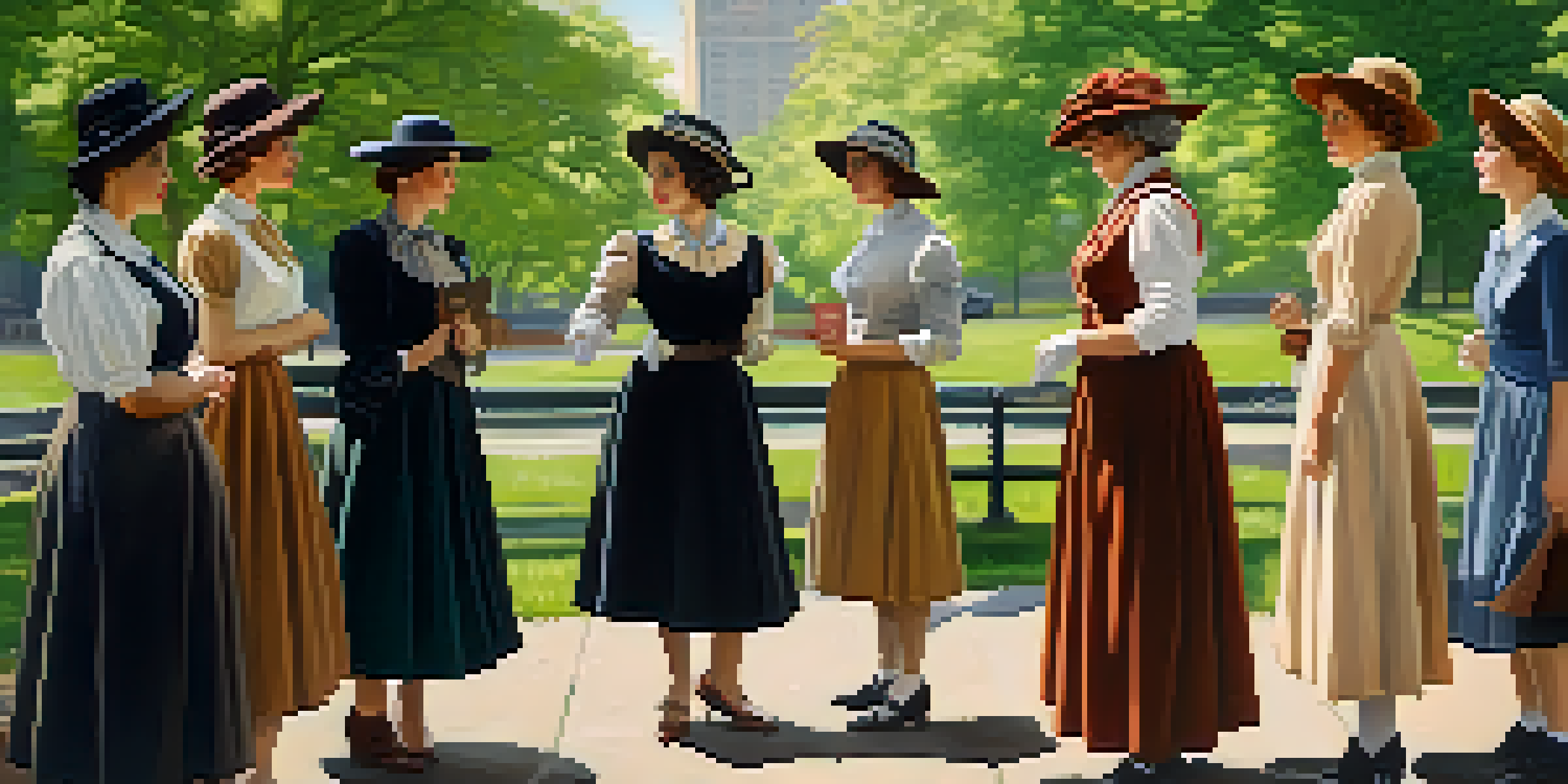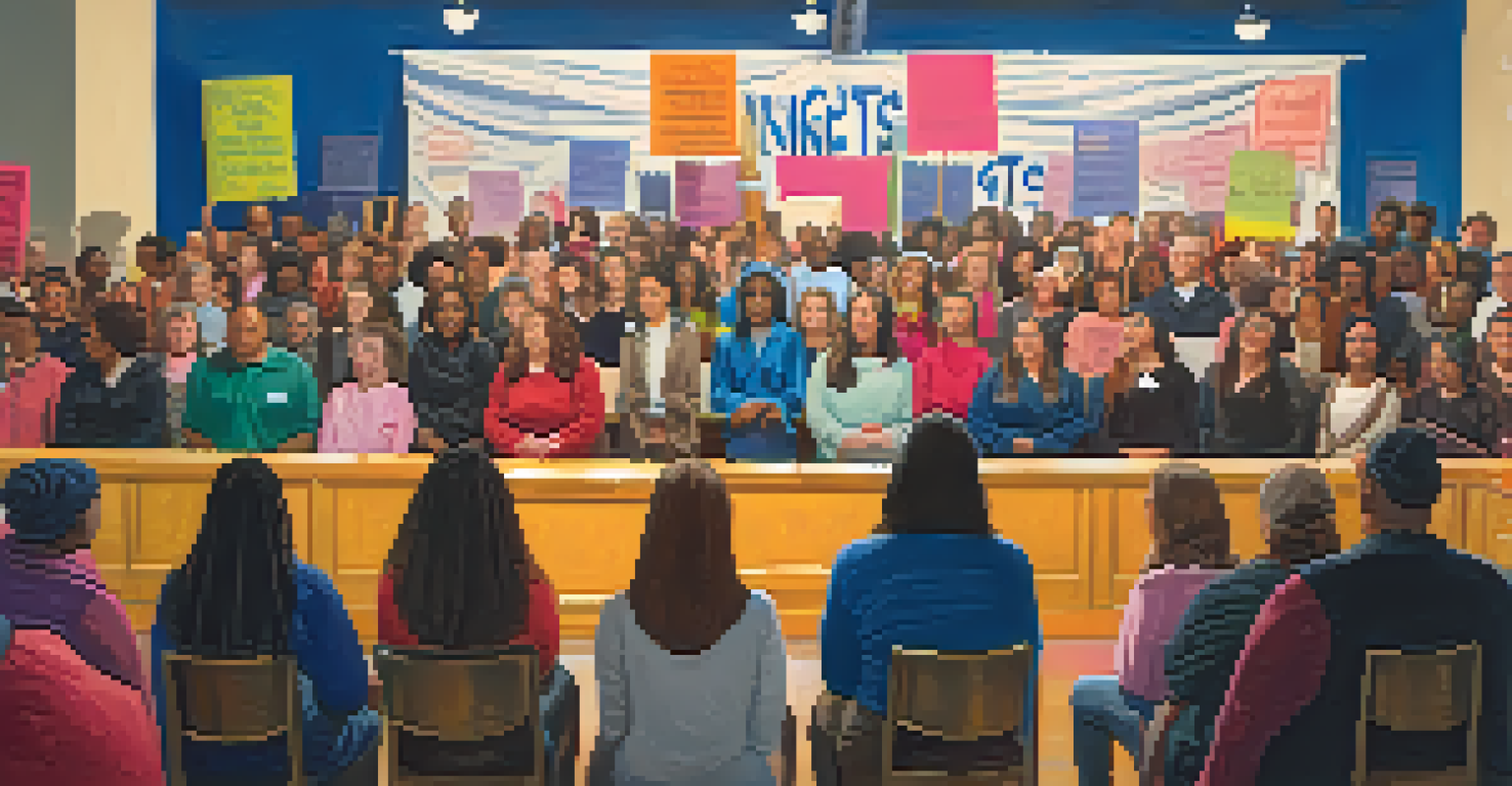Women in Pittsburgh: Pioneers of Diversity and Social Change

The Historical Context of Women in Pittsburgh
Pittsburgh has a rich history that includes the crucial role of women in shaping its social fabric. From the early industrial days to the modern era, women have been at the forefront of various movements. They not only contributed to the workforce but also pushed for rights and recognition in a male-dominated society.
The most common way people give up their power is by thinking they don’t have any.
In the late 19th and early 20th centuries, women began forming clubs and organizations to advocate for social reform. These groups tackled issues ranging from labor rights to education, laying the groundwork for future generations. Their efforts were not only about personal advancement but also about uplifting their communities.
This historical backdrop sets the stage for understanding the diverse roles women have played in Pittsburgh’s evolution. As we delve into specific figures and movements, it becomes clear that their influence is both profound and lasting.
Notable Figures in Pittsburgh's Women's Movement
Several remarkable women have emerged from Pittsburgh, each leaving an indelible mark on the city’s landscape. One such figure is Frances Willard, a leading advocate for temperance and women's suffrage in the late 1800s. Her tireless work not only changed local policies but also inspired many to join the cause.

Another influential woman is Fanny Sellins, a labor activist who fought for workers' rights in the early 20th century. Her dedication to improving working conditions for women and men alike made her a symbol of resilience and strength. These women exemplify the spirit of Pittsburgh's women in their pursuit of justice.
Women Shaped Pittsburgh's History
Women have been instrumental in Pittsburgh's social and labor movements, advocating for rights and recognition throughout history.
Highlighting these figures not only honors their contributions but also serves as a reminder of the ongoing fight for equality. Their stories inspire current and future generations to continue advocating for social change.
The Role of Women in Labor Movements
Women in Pittsburgh have historically played a crucial role in labor movements, advocating for fair wages and safe working conditions. During the steel strikes of the 20th century, women organized and participated alongside men, proving their strength and commitment to the cause. Their involvement was vital in pushing for legislation that protected workers' rights.
Women are the largest untapped reservoir of talent in the world.
These women often faced unique challenges, including the dual burden of work and home responsibilities. Yet, their determination shone through as they mobilized communities and demanded change. By creating support networks, they empowered one another to stand up against injustice.
The legacy of these labor movements not only transformed Pittsburgh's economy but also set a precedent for future generations. Understanding their contributions helps us appreciate the ongoing fight for workers' rights and gender equality in the workplace.
Women of Color and Their Impact
Women of color in Pittsburgh have historically faced additional challenges, yet their contributions to social change have been profound. Figures like Octavia Butler, a renowned author, used her platform to address issues of race and gender, inspiring many to consider the intersectionality of their identities. Her work is a reminder of the importance of diverse voices in literature and activism.
In addition, local leaders have mobilized communities to address systemic issues such as housing, education, and healthcare disparities. Their grassroots efforts have not only uplifted their neighborhoods but have also sparked wider conversations about equity in Pittsburgh and beyond.
Impact of Women's Organizations
Organizations like the YWCA have provided vital support and advocacy for women's issues, fostering community and driving social change.
Recognizing the impact of women of color is crucial to understanding the broader narrative of Pittsburgh's social movements. Their experiences and insights enrich the discussions around diversity and social justice.
The Impact of Women's Organizations
Women’s organizations in Pittsburgh have played a vital role in advocating for change and supporting one another. From the YWCA to local grassroots groups, these organizations have provided resources, education, and a platform for women's voices. They have been instrumental in addressing issues such as domestic violence, health care access, and education.
These organizations often collaborate with other community groups to amplify their efforts. By forming coalitions, they have increased their reach and effectiveness, creating a stronger network for advocacy. This collaborative approach highlights the importance of unity in the pursuit of social change.
As we explore the impact of these organizations, it becomes evident that they are not just support systems but also catalysts for transformation. Their work continues to empower women and foster a sense of community in Pittsburgh.
Education as a Tool for Empowerment
Education has always been a cornerstone of empowerment for women in Pittsburgh. Institutions such as the University of Pittsburgh have not only educated thousands of women but have also encouraged them to become leaders in various fields. This emphasis on higher education has opened doors and challenged traditional gender roles.
Programs aimed at supporting women in STEM (Science, Technology, Engineering, and Mathematics) have gained momentum in recent years. Initiatives that promote coding, engineering, and science among young women are crucial in closing the gender gap in these industries. By providing education and mentorship, these programs empower women to pursue careers that were once largely inaccessible.
Education Empowers Women Today
Higher education has played a critical role in empowering women in Pittsburgh, encouraging them to pursue leadership roles and careers in various fields.
Ultimately, the focus on education underscores a broader commitment to social change. When women are educated and empowered, they can advocate for themselves and their communities, driving progress in Pittsburgh.
Contemporary Challenges and Triumphs
While Pittsburgh has made significant strides in women's rights, contemporary challenges remain. Issues such as gender pay gaps, workplace harassment, and access to reproductive health services are still prevalent. Women continue to advocate for equality and justice in various settings, from the workplace to public policy.
However, there are also triumphs worth celebrating. Women-led businesses are on the rise, and female representation in local government is increasing. These advancements signify a shift towards more inclusive leadership and decision-making processes, reflecting the diverse needs of the community.

Acknowledging both the challenges and triumphs helps us understand the ongoing journey towards equality. Pittsburgh's women remain resilient, continuing to pave the way for future generations in their quest for social change.